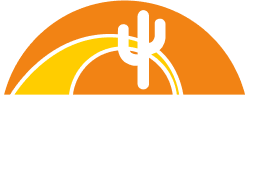Trench & Excavation Safety Guidelines
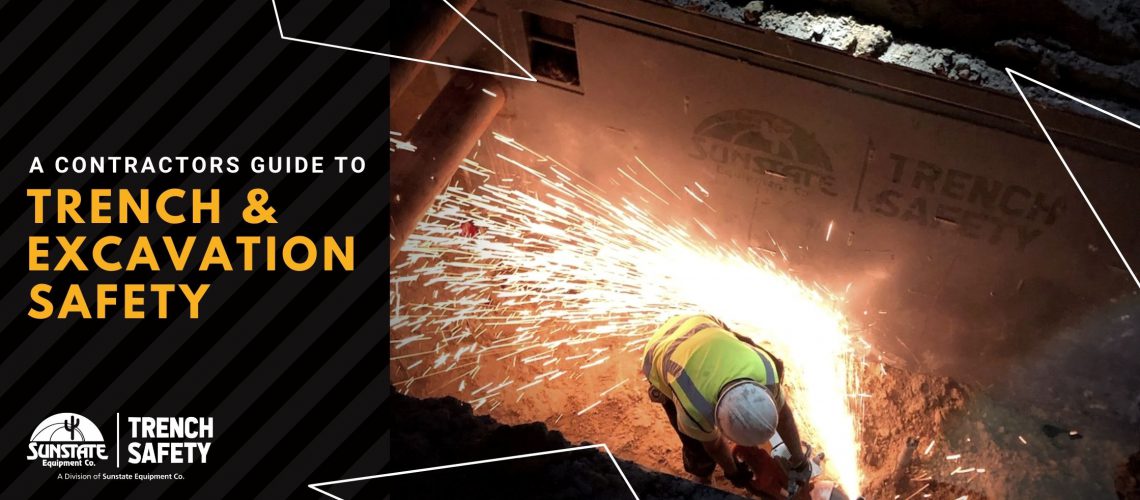
From ground-up construction to utility repair, any time a team will be working more than five feet below ground, OSHA Trench and Excavation Safety guidelines must be followed. Here is a quick guide to help understand the ins and outs of safe digging, along with the right dirt and excavation equipment to get your construction project off to a safe start.
PREPARING TO DIG
Prior to breaking ground, contractors must examine the construction site to identify any potential safety hazards and evaluate several site conditions, including surrounding traffic, soil types, weather, overhead and belowground utilities, surface or ground water, nearby structures, and more.
It is critical to have a Certified Competent Person on hand to thoroughly evaluate the site and soil conditions, and to create a plan utilizing the appropriate protective systems for the site and job. A Competent Person, defined by OSHA, is an individual who has been professionally trained to identify or foresee hazards, and who is authorized to take corrective measures to eliminate those hazards.
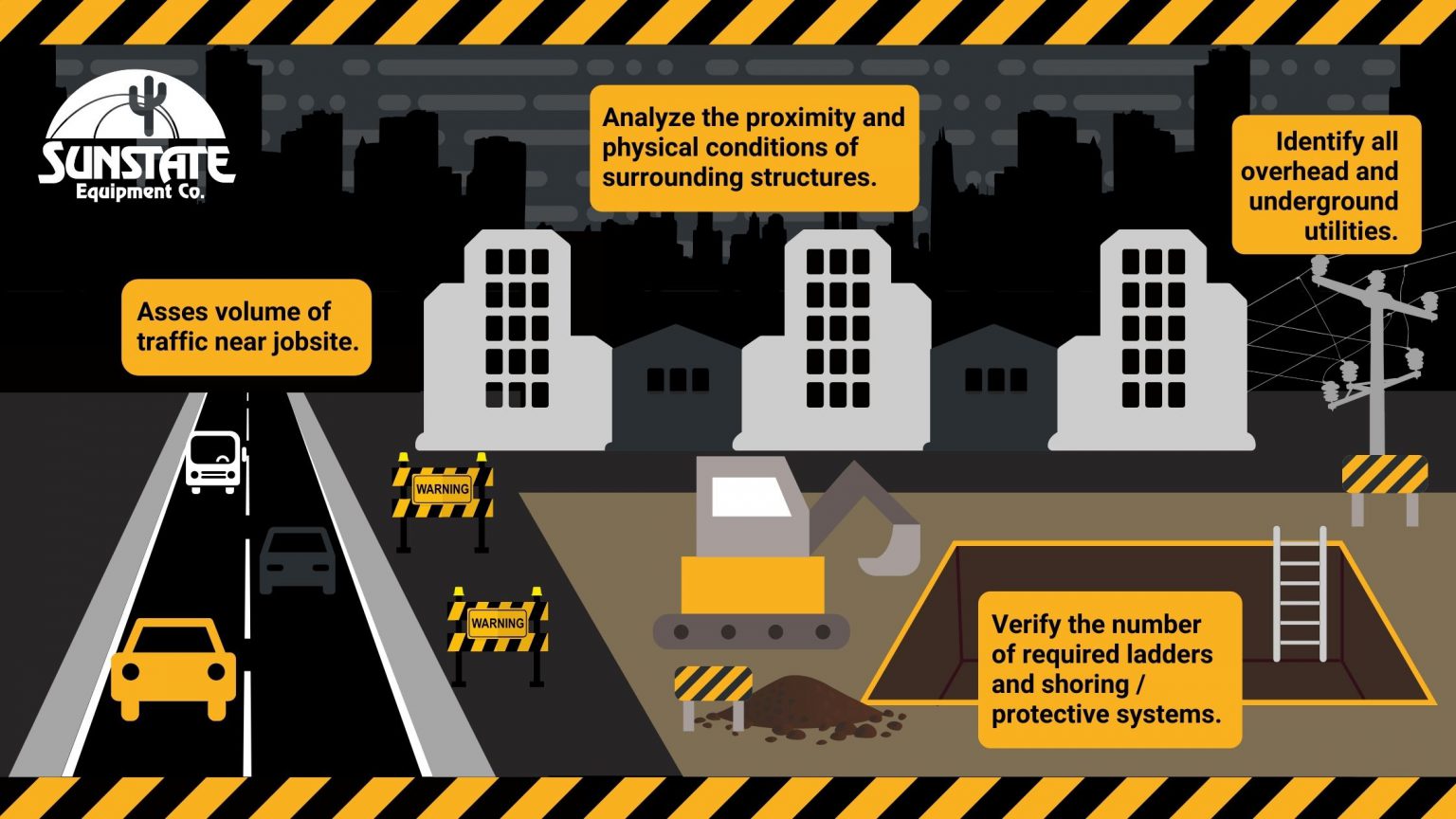
PROTECT YOUR DIG TEAM
Protective systems are used to reduce potential hazards during excavation and trenching projects. OSHA requires strict safety protocols to protect construction workers from potentially life-threatening injuries while working in confined spaces or trenches with a depth exceeding five feet. When sloping or benching, trenches deeper than 20 feet require a protective system designed by a registered professional engineer.
There are four acceptable types of trench and excavation protective systems, each require a full understanding and analysis of the site, space, depth, and soil conditions.
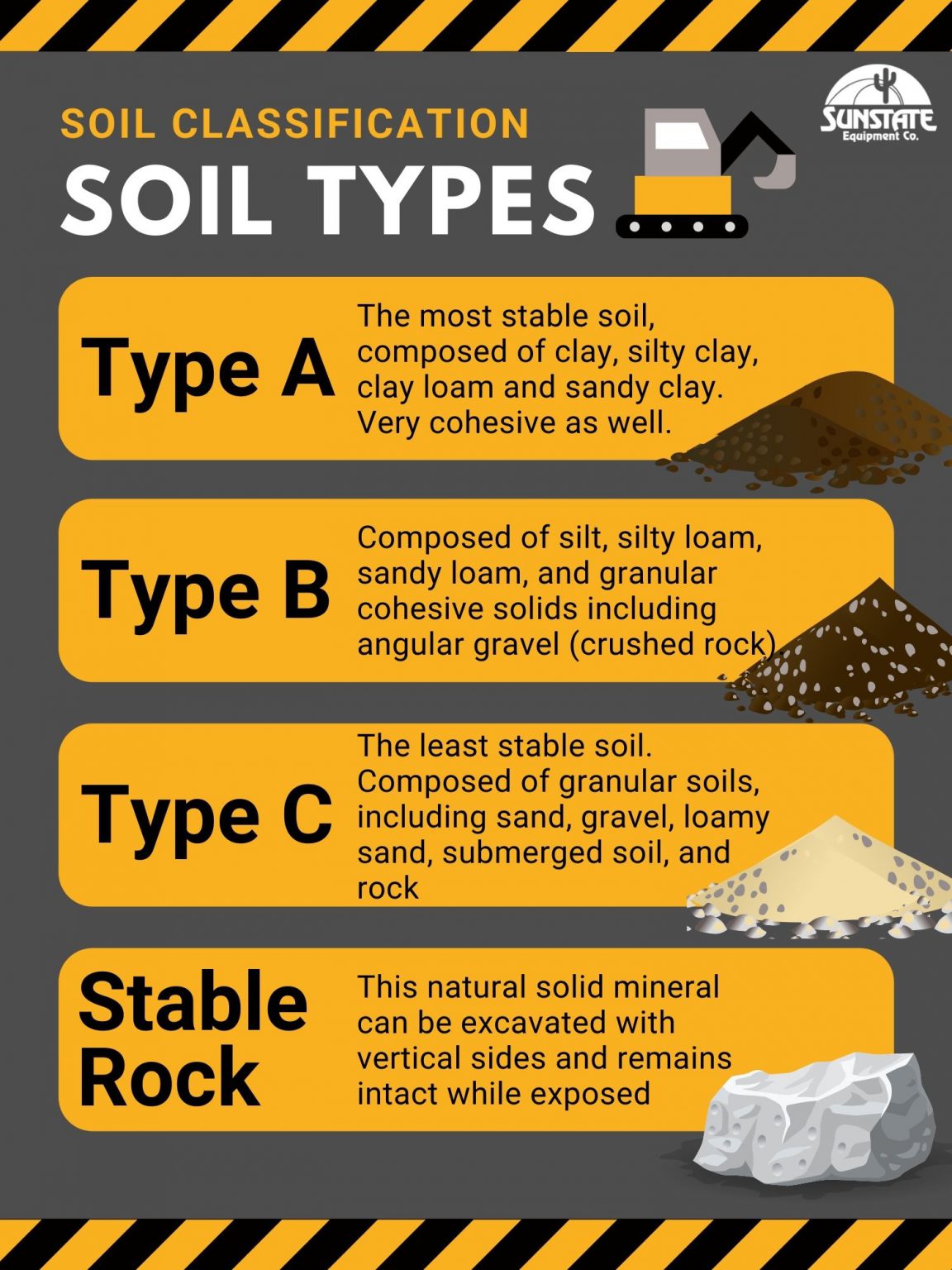
Sloping
Conducive to any soil type, this protective system cuts the walls of the trench or excavation area back at an angle from the floor to create a stable slope. An OSHA-Certified Competent Person will determine the slope angle by first evaluating the soil. In general, the flatter the angle, the more protection workers have. Slopes angles must not be steeper than 1.5 to 1.
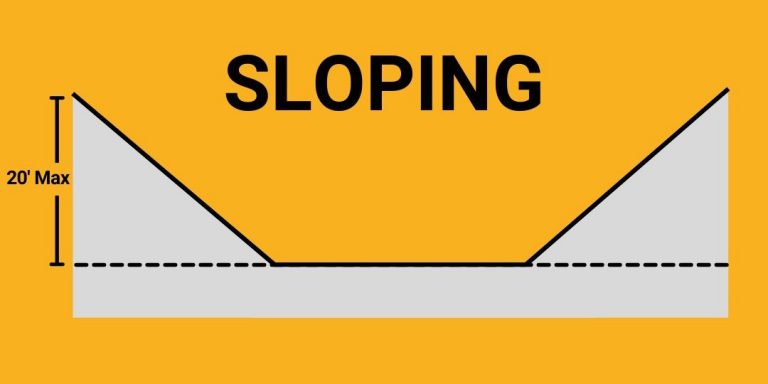
Benching
Under certain cohesive soil conditions (Types A and B only) or with stable rock, trench projects can safely utilize a “Benching” system to prevent cave-ins. Like Sloping, Benching relies on excavating the natural soil in a way that creates stable trench sides. To be done safely, a series of horizontal and vertical surfaces are cut into the side of the excavation site, creating a tiered bench effect. An OSHA-Certified Competent Person will determine safe ratios of horizontal to vertical cuts.
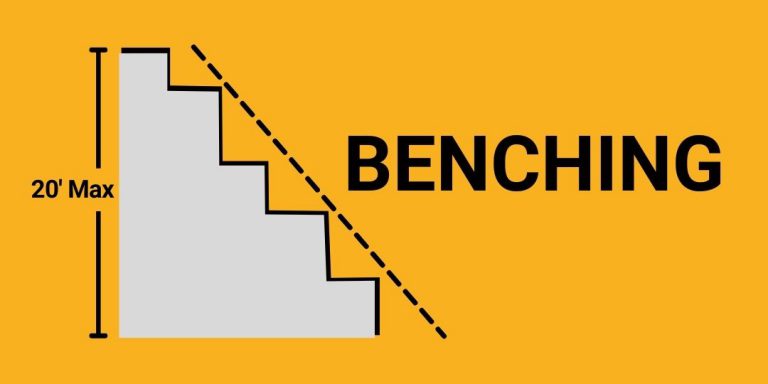
Shoring
Designed to prevent excavation failure (cave-ins), engineered shoring systems support surrounding trench walls with vertical upright sheeting and cross braces (shores). Shores apply safe pressure on the vertical uprights and sheeting.
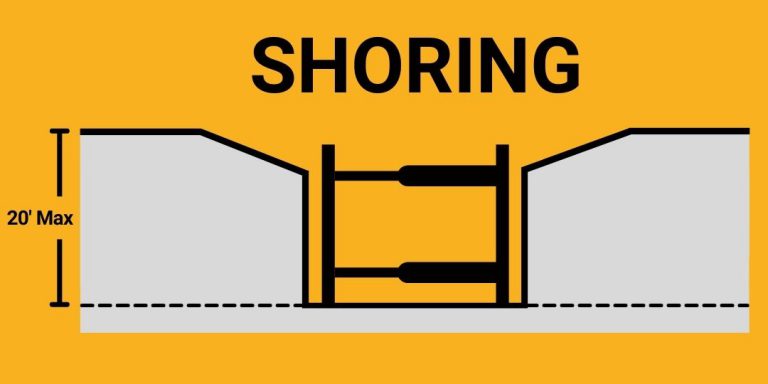
Shielding
Shields are engineered metal boxes that are placed in the excavation site. Although they do not provide reinforcement to trench walls, shield boxes provide workers with an environment to work safely and protected from collapsing materials, loose soil, and falling debris.
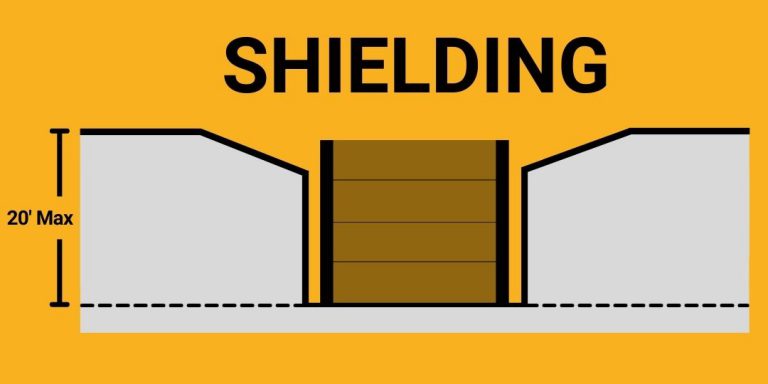
ESSENTIAL HEAVY EQUIPMENT
For underground and excavation projects, contractors typically rent heavy equipment like backhoes and excavators. The backhoe is a versatile dirt mover with a two-sided design. One side can be configured an excavation bucket for fast digging, while the other side uses a skid steer bucket or blade to move dirt and materials from the excavation site.
Excavators come in a variety of sizes for precision trenching and digging. Larger excavators are ideal for serious digging projects, like foundation excavation where a lot of ground needs to be cleared. Mini excavators are the more compact and versatile heavy equipment option, perfect for maneuvering around tight spaces without compromising power.
In addition to top quality heavy equipment, Sunstate Equipment’s Trench Division rents trench safety shoring and shielding equipment, backed by our renowned commitment to quality, safety, and superior customer service.
Ask about our OSHA-Compliant Competent Person and Confined Space Safety Awareness Training to help keep your jobsite safe and compliant with the latest OSHA and NUCA Trenching and Excavation Safety guidelines.
Contact Sunstate Equipment Trench Safety Division for more information. (866) 823-3319
©2025 Sunstate Equipment Co., LLC
